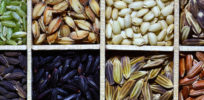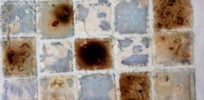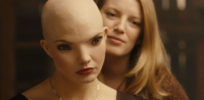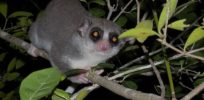io9
No, tongue folding is not a genetic trait
Rolling your tongue is not a genetic trait. Most of the people reading this were told, at some point during ...
Newcomers to Hawaii drive anti-GMO activism against local farmers and scientists
After Hawaii banned GMO crops, local farmers say they have no idea whether their plants are illegal or not. Plus, ...
‘Preppers’ join anti-GMO movement in search of healthier post-apocalyptic lifestyle
Activists championing organic foods have found support among preppers (people preparing for the end of civilization). They're sympathetic to the ...

GM crops safe but ecological concerns need to be examined, regulated
Scientists have demonstrated that genetically modified organisms have no measurable negative impacts on human health. Indeed, they may hold the key ...
Anti-GMO activists hijacked Indian farmer suicides story for their own agenda
Of the many horror stories we hear about GMOs, few are as heart-rending as the one about how nearly 300,000 ...
Cooking, farming and other ways our culture can change our genes
The way our ancestors ate, cooked, explored, and interacted with others has had a profound influence on our genetic inheritance ...
Scientists create genetically modified cells that fight HIV
The treatment is considered radical, and the results were drawn from a small scale human trial, but for the first ...
Does cilantro taste like detergent to you? Food preferences are hard-wired
Ever wonder why some people think cilantro tastes like detergent while others scatter it over everything? Or why brussels sprouts ...
What if natural products came with a list of ingredients?
Processed foods are notorious for their jaw-droppingly long lists of chemical-laden ingredients, each one sounding worse than the last. But ...
Human family dynamics explained through the lens of bird evolution
Humans often rear their children with help from family and friends. But why would such a strategy evolve? What could ...

Bio-artist uses bacteria and antibiotics to color textiles
Bio-artist Anna Dumitriu uses deadly bacteria, such as MRSA, and antibiotics to color textiles in an attempt to challenge the relationship ...
Scientists Use a Mutated Virus to Build a Better Battery
By unleashing a genetically modified virus onto microscopic electrode wires, researchers from MIT have shown that the performance of lithium-air ...
DNA testing Q&A with Duke professor
Misha Angrist is an assistant professor at Duke who specializes in personal genomics. He deals with questions such as what ...
Bioengineered patch regrows damaged bones inside the body
Researchers from the University of Iowa have developed a remarkable new procedure for regenerating missing or damaged bone. It's called ...
Genetic analysis shows “Yeti” is actually a polar bear hybrid
Aw, shucks. Science goin’ off and ruining everything again for cryptozoologists. The latest blow comes from a UK geneticist who ...
How artificial chromosomes could transform humanity
Normally, an extra pair of chromosomes would be considered dangerous. But what if we could design our own? According to ...
The idea of open-sourcing GE attracts more interest
The following is an edited excerpt. Frederick Kaufman has penned a provocative article for Slate's Future Tense column in which ...
Traces of Neanderthal DNA in human genes suggest complex ancestry
The following is an excerpt. Thirty years ago, anthropologists were divided into two camps: Those who believed that humans had ...

Far-fetched ethical questions that are about to get real
Science fiction's favorite moral quandaries are suddenly pressing concerns ...
How do identical twins develop different personalities?
The following is an excerpt. Find a link to the full story below. Despite having the same genetic makeup, identical ...

Could dwarf lemur genomes hold the key to long-distance space travel?
Two species of dwarf lemur hibernate, an unusual trait in primates. By mining the genomes of these species, scientists might ...
10 unusual genetic mutations in humans
The following is an excerpt. No two people are alike, due to the subtly different ways our genomes are expressed ...
GMOs are one solution to an ancient puzzle
The following is an excerpt. For decades now, GMOs have been railed against for producing food aplenty, but at grave ...
Is China selectively breeding a new generation of genius babies?
The following is an excerpt. There's a provocative and somewhat disturbing article over at Vice about China's recent foray into genetics and the country's ...
Debunking the “humans are getting dumber” study
A new study published in Trends in Geneticsis suggesting that humans are slowly but surely losing their intellectual and emotional ...
Researchers create an animal entirely from stem cells
Biotechnology is getting into some pretty interesting territory these days. The latest breakthrough comes from Kyoto University where research scientists ...

